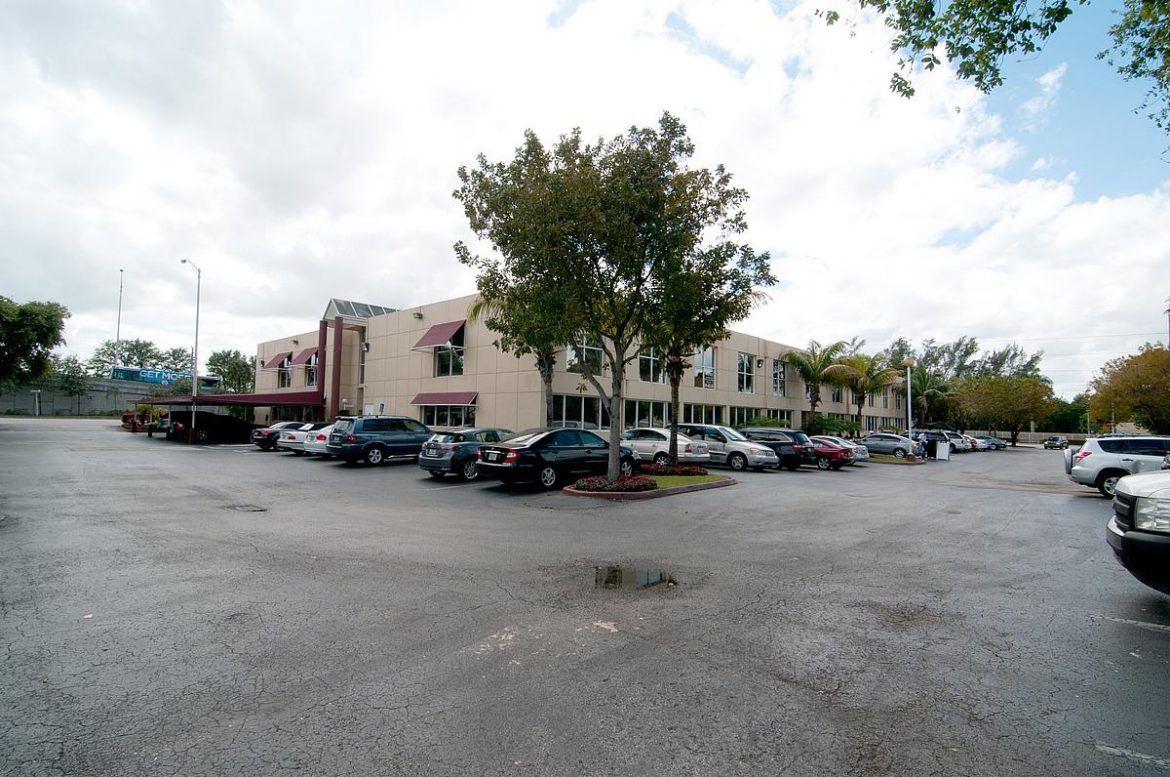The condominium association of a luxury tower in Miami’s Edgewater neighborhood has filed a civil lawsuit against Airbnb, and several additional lawsuits against Airbnb hosts, over short-term rentals at the property.
Transient renters have led to problems including a shootout in an elevator and increased costs for security, maintenance and insurance, the condo association alleges.
“Airbnb has misappropriated the condominium property and turned it into its own de facto, unlicensed hotel,” according to the complaint, filed by Opera Tower Condominium Association Inc. in Miami-Dade Circuit Court Aug. 24.
Separately, Airbnb last week began cracking down on Florida properties used to host parties. More than 40 listings across 12 counties that received complaints or otherwise violated company policies were suspended from the platform.
The Opera Tower is a 665-unit condo that opened in 2008. While rentals are not expressly prohibited by condo rules, residents are supposed to be screened and registered by the association and present leases during that process. Additionally, short-term rentals in that part of Downtown Miami are prohibited by zoning laws.
The complaint alleges that about 450 units at Opera Tower are used by full-time residents while the others are used for short-term rentals. As those proliferated, common areas have gotten crowded and waits for the elevators in the 56-story building can stretch for 15 minutes. The property’s condo association hired a person to deal with related headaches and has had to spend an additional $200K on janitorial services, plus an annual $560K on security, it said in the complaint.
Over the past three years, there have been 397 9-1-1 calls, and alleged crimes by transient users have included robberies, assaults and at least one rape allegation. In June, two dueling gunmen shot up an elevator and third-floor lobby.
In 2018, the condo association’s insurance company dropped the policy because of the short-term rentals — a new policy with a different company cost $93K more, the complaint says. On Aug. 6, the city issued a cease-and-desist letter to the condo over short-term rentals and said it is subject to an ongoing investigation by code enforcement because it is not zoned for lodging.
“Quite brazenly, Aibnb makes no effort to either verify the legality of accommodations or even to remove listings once it has been informed that its listings may be illegal,” attorneys for the association wrote in the complaint. “Airbnb’s business model calls for it to continue riding the gravy train of booking fees from illegal listings and dare affected property owners to sue it.”
The lawsuit accuses Airbnb of aiding and abetting breaches of the condo declaration, aiding and abetting trespass and violating Florida’s Unfair and Deceptive Trade Practices Act. The condo association filed separate lawsuits against Airbnb hosts in Opera Tower including Happy Travels Miami LLC and Suarez Group Hotels Corp.
Separately, on Aug. 20, as COVID-19 continued to spread throughout the world, Airbnb announced a global ban on all parties and events at Airbnb listings and a cap on occupancy at 16. The party ban remains in effect until further notice. Airbnb has also restricted rentals for people younger than 25 — they can’t rent near where they live unless they have at least three positive reviews.
The city’s investigation of Opera Tower and the subsequent lawsuits come after a Miami TV station, WSVN, this summer explored how “pandemic parties” were proliferating in South Florida as bars and restaurants closed and nightlife moved to private parties. It quoted Opera Tower residents saying that they felt unsafe there, and found that pornography was filmed on one of the condo’s balconies.
Airbnb Manager of Public Policy in Florida Viviana Jordan said in a statement that the company supports local officials stopping irresponsible behavior at host properties and that the company has set up a hotline to field complaints.
Airbnb said in a statement that only a “small minority” of hosts would be affected by its Florida crackdown and that these hosts had previously received warnings.
“The vast majority of hosts in Florida contribute positively to their neighborhoods and economy, and they also take important steps to prevent unauthorized parties — like establishing clear house rules, quiet hours, and communicating in advance with their guests,” Jordan said.
Airbnb’s Florida crackdown affected properties Alachua, Broward, Duval, Lake, Lee, Manatee, Miami-Dade, Okaloosa, Orange, Palm Beach, St. Johns and Walton counties. The company has previously led crackdowns in specific geographic areas. In August, it removed 50 listings in Los Angeles County and another 50 in Arizona.
Aibnb has reportedly lost $1B since the COVID-19 pandemic began. Nevertheless, amid these challenges, last month Airbnb filed paperwork to become a publicly traded company.
Source: Bisnow

